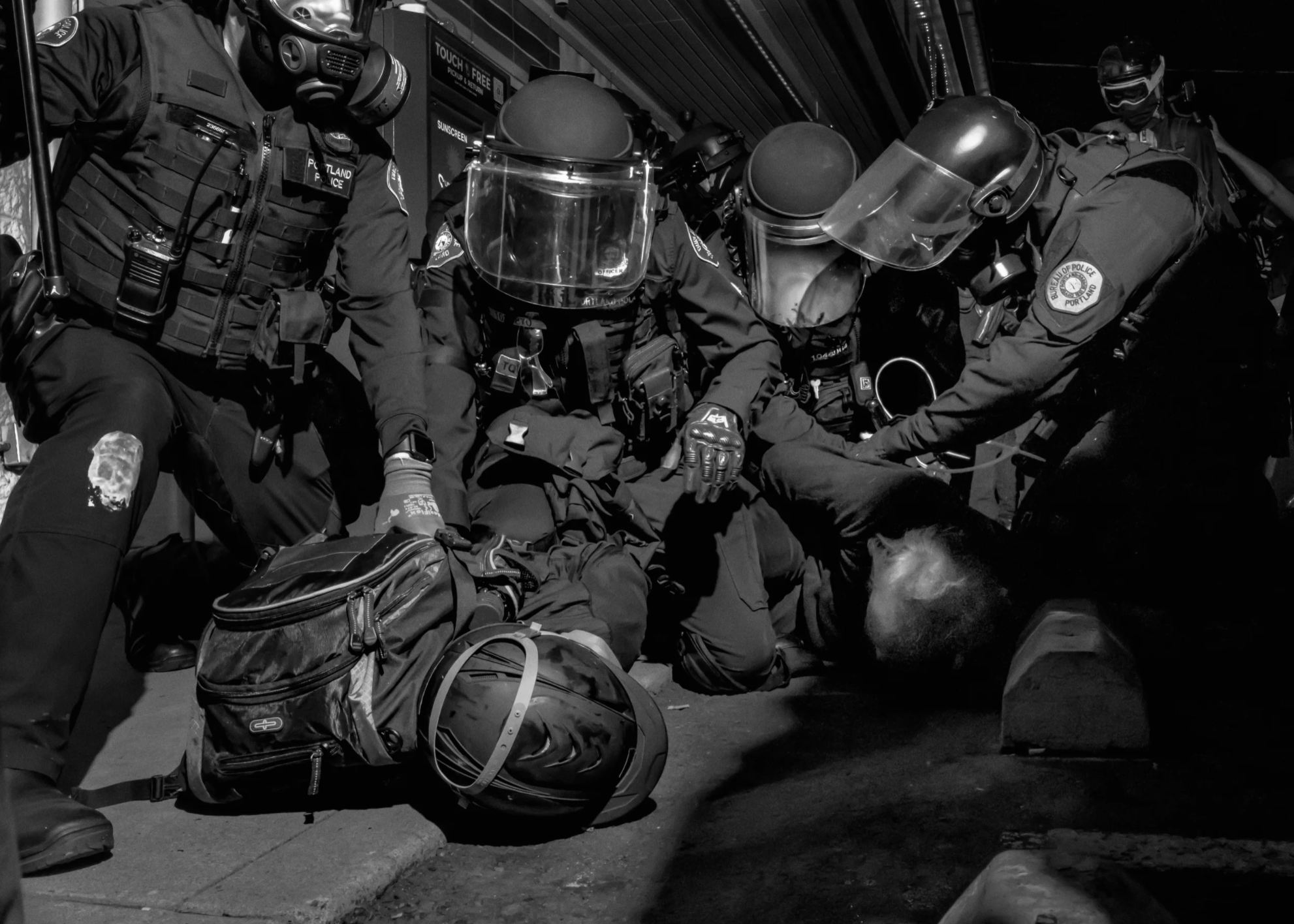Trump is vowing to designate the movement as a terrorist organization. But its supporters believe that they are protecting their communities—and that confronting fascists with violence can be justified.
Luke Mogelson, October 25, 2020
Shortly after noon on September 26th, about fifteen hundred antifascists gathered on the lawn of Peninsula Park, in Portland, Oregon. Some wore black bloc—the monochromatic clothing that renders militant activists anonymous to law enforcement—but the event was family-friendly, and most attendees had dressed accordingly. Booths set up in a leafy grove offered herbal teas and tinctures, arts and crafts, condoms and morning-after pills, radical zines, organic vegetables. Above a stage, a banner read “everyday antifascist / come for the anarchy / stay for the soup.” In July, President Donald Trump had claimed, without evidence, that anarchists were throwing soup cans at police during demonstrations for racial justice. When the anarchists were arrested, he explained, “they say, ‘No, this is soup for my family.’ ” Inevitably, “soup for my family” became a tongue-in-cheek slogan at Portland protests.
Other Presidential statements have been harder to make light of. Throughout the nationwide upheaval set in motion by the police killing of George Floyd, in Minneapolis, on May 25th, Trump has vilified demonstrators as nefarious insurrectionists. Much as adversaries of the civil-rights movement once contended that it had been infiltrated by Communists, he invokes antifascists, or Antifa, to delegitimatize Black Lives Matter. A week after Floyd’s death, as popular uprisings spread from Minneapolis to other cities, the President declared, “Our nation has been gripped by professional anarchists, violent mobs, arsonists, looters, criminals, rioters, Antifa, and others.” As the election nears, he has portrayed Antifa as a grave security threat that the Democrats and their Presidential nominee, Joe Biden, will let destroy the country. During the first debate, after Biden noted that Trump’s F.B.I. director, Chris Wray, had described Antifa as “more of an ideology or a movement than an organization,” Trump scoffed, “You gotta be kidding me.” He told Biden, “They’ll overthrow you in two seconds.”
Such dire warnings are wildly disconnected from reality. Most Americans who identify as antifascists don’t belong to any particular group, and there is no national Antifa hierarchy or leadership. To date, one American has been killed by someone professing an antifascist agenda; right-wing extremists, by comparison, have been responsible for more than three hundred and twenty deaths in the past quarter century. The only known plot to “overthrow” the government in recent months was hatched by right-wing militia members, who, according to the F.B.I., planned to kidnap Michigan’s Democratic governor, Gretchen Whitmer. In June, I stood next to the alleged ringleader, Adam Fox, during a rally at Michigan’s capitol, while a speaker yelled, “We are here demanding peace as these terrorist organizations want to burn down our cities!” Fox carried an assault rifle and wore an ammo vest with a patch that said, “Si vis pacem, para bellum”: “If you want peace, prepare for war.”


